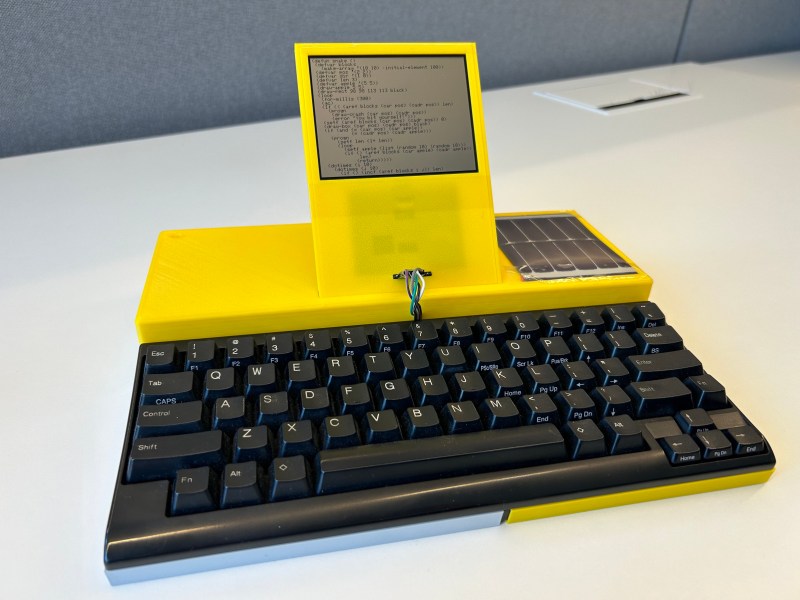Source: Hack a Day

A common complaint among laptop users is that while battery technology has vastly improved over the past decades, a simulltaneous shrink in form factors has meant that a typical laptop today doesn’t last much longer on a battery charge than one from the early 2000s. But it doesn’t have to be that way, as [Andreas Eriksen] demonstrates with his entry for the Low Power Challenge. The PotatoP is a portable computer that should be able to run for about two years on a single battery charge, and can be topped up through an integrated solar panel.
Granted, it doesn’t have the processing power of even the cheapest laptop you can buy today, but it’s perfectly fine for [Andreas]’s use case. He’s a Lisp hacker, and a Sparkfun RedBoard Artemis can run uLisp just fine on its 48 MHz Cortex-M4F processor. The operating environment is very basic though, even requiring [Andreas] to write his own text editor, called Typo, to give him editing luxuries like backspace functionality and a movable cursor.
The Artemis board is very power-efficient by itself – typical power consumption is less than 1 mA. [Andreas] added a simple monochrome black-and-white LCD screen capable of displaying 53 columns of text, plus an SD card reader for data storage, and designed a sleek 3D-printed case to hold everything together. When running a typical piece of code, the entire system uses around 2.5 mA, which translates to about 125 days of continuous run-time on the beefy 12000 mAh lithium battery. Add a bit of solar power, plus a more realistic eight-hour working day, and the two year runtime estimated by [Andreas] appears entirely reasonable.
This has to be one of the most power-efficient portables we’ve ever seen, and one running Lisp at that. Despite its age, Lisp keeps popping up in interesting custom computers like the Lisperati1000 cyberdeck and The Lisp Badge.


